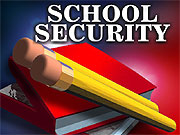AFT to host educators’ summit on school discipline: March 21-22 2014
On March 21-22, the AFT will host an educators’ summit on school discipline.
The summit will bring together teachers, support personnel, school-based mental health professionals, superintendents and administrators to help change school climates by identifying alternatives to suspensions and developing strategies involving restorative practices. The summit comes at a time when the buzz around school discipline policies continues to grow. On Jan. 8, Attorney General Eric Holder and Secretary of Education Arne Duncan announced new guidelines aimed at ensuring that school discipline policies are equitable and effective. That same day, the AFT and the Albert Shanker Institute hosted a symposium to explore how rigid school discipline policies like “zero tolerance” are effectively discriminatory and steal opportunity from great numbers of students, particularly children of color.
Read Loretta Johnson’s Column on School Suspensions here
A New Path Forward On School Discipline Practices- AFT Statement
Later this month, on March 21-22, the AFT will host an educators’ summit on school discipline. The summit will bring together teachers, support personnel, school-based mental health professionals, superintendents and administrators to help change school climates by identifying alternatives to suspensions and developing strategies involving restorative practices.
Data show that boys of color are disproportionately affected by disparate treatment that typifies zero tolerance and other ineffective discipline policies. According to the Civil Rights Project at UCLA, 3.3 million students were issued out-of-school suspensions in the 2009-2010 school year. Of those students, African-Americans were found to be three times more likely than their peers to be issued an out-of-school suspension, a punishment also handed out to nearly 1 in 13 Latinos.
“What started as a push for safe, secure schools now has become the only response to any infraction,” says AFT President Randi Weingarten of zero tolerance.
Divisive approaches like zero tolerance create “a really alienating environment” for many students, Weingarten says, which is made worse by school reforms that cause tests to proliferate rather than provide real supports like counseling for kids and professional help in classroom behavior management.
During its February meeting, the AFT executive council adopted “Reclaiming the Promise: A New Path Forward on School Discipline Practices,” a policy statement that recommends a number of changes in current policies and practices that the AFT believes would have a positive impact on school discipline disparities. They include ongoing professional development for all school staff; funding for mental health services and other supports; investments in social and emotional learning; collaborative analysis of school discipline data; the restoration of critical school personnel such as counselors, psychologists, nurses and social workers; the inclusion of students, families, educators, support personnel, juvenile justice professionals and other community members in the development of school improvement plans; and the implementation of alternatives to suspension and expulsion to manage student behavior.
Rep. Keith Ellison (D-Minn.), who took part in the AFT symposium, believes teachers are in a unique position to work with parents and others to develop alternatives to zero-tolerance policies, which often feed the school-to-prison pipeline. Zero-tolerance policies, test-based sanctions and federal sentencing guidelines wrongly take frontline experience and discretion out of key decisions, Ellison says, and they foster a “zero-sum, winners and losers” approach to opportunity and advancement in America.
In a recent op-ed in the New York Times, Robert K. Ross and Kenneth H. Zimmerman noted that “too many schools still use severe and ineffective practices to address student behavior.”
“Large numbers of students are kicked out, typically for nonviolent offenses,” the article continues, “and suspensions have become the go-to response for even minor misbehavior, like carrying a plastic water gun to elementary school or sometimes simply for talking back.”
Rather than teaching kids a lesson, Ross and Zimmerman wrote, “these practices increase dropout rates and arrest rates—with severe social and economic consequences.”
So how do we develop alternatives to policies like zero tolerance that have proven to be discriminatory and largely ineffective—policies, practices and resources that give teachers, administrators and other educators the tools they need to maintain safe and healthy learning environments?
Holder and Duncan announced the new national guidelines at Frederick Douglass High School in Baltimore where a new discipline policy has dramatically reduced suspensions. In a recent Education Week column, AFT Secretary-Treasurer Lorretta Johnson, who is a Douglass alumna, called the school “a shining example of a public school that has seen marked student improvement since it changed its discipline practices and implemented other reforms to improve student achievement.”
“I am particularly pleased with what Douglass High School has accomplished and am confident others can achieve success by implementing smart, well-funded revised discipline policies and other reforms that will help reclaim the promise of public education for all students,” Johnson wrote.
Baltimore Teachers Union President Marietta English sees and feels a different atmosphere when she visits Douglass. “The school has definitely turned around,” says English, who credits the relationship building that has taken place between teachers and other school staff and students at the school. “They’ve built great relationships, and you see it in the students’ attitude toward school.”
English says that there are some aspects of the Baltimore school district’s new code of conduct, which was crafted by educators, parents, students and other stakeholders, that need to be revisited. “We’re not proponents of kicking kids out of school, but we do believe that there’s a need for alternative placements for those students who need more intensive supports before they are returned to the classroom.”
She is quick to add, however, that the code of conduct has been a real success, reducing the number of suspensions and expulsions, and bringing down the dropout rate. “Good things happen when teachers and students feel that they have been part of the process.”
Some AFT affiliates, including the United Federation of Teachers in New York City and the Peoria Federation of Teachers in Illinois, are taking on the issue of discipline codes and student behavior as part of a pilot program funded by a grant obtained by the AFT from Atlantic Philanthropies.
The UFT is part of a consortium called the Institute for Understanding Behavior, whose goal is to “improve student achievement and social/emotional competence by providing schools with a systemic approach to understanding, assessing and supporting positive student behavior.”
In Peoria, a broad coalition of stakeholders, including the school district, parent groups, the union and a cross section of community organizations, formed a “school discipline collaborative.” The initiative targets Peoria North, a program housed at Peoria High School, and the Woodruff Career and Technical Center.
Professional development for teachers and other school staff and strong partnerships with community service providers are essential elements of the Peoria program. One of those partnerships is with FamilyCore, which has two full-time staffers based at Peoria North who work directly with students and staff. “The FamilyCore staffers are on hand to provide immediate intervention when there’s a discipline problem,” says Makeba Barnes, a grant consultant for the Peoria program.
The aim, she says, is to immediately address the situation—with the goal of keeping kids in the school community and returning them to their classrooms as soon as possible.
At Woodruff, training provided by the community organization Positive Action is designed to both empower students and create an atmosphere of mutual respect between students and teachers. In addition, teachers and other staff at Woodruff receive ongoing professional development around such topics as cooperative learning and student engagement strategies.
Improved attendance, less tardiness, increased parent involvement, better student achievement, and reduced suspension and expulsion rates are the major goals of the Peoria program.
AFT helps launch effort to limit student loan debt
AFT President Randi Weingarten and Sen. Elizabeth Warren (D-Mass.) spoke March 6 at the Washington, D.C., launch of “Higher Ed, Not Debt,” a new multiyear campaign advocating for affordable access to higher education for all without the burden of debt or financial hardship.
The AFT is one of more than 60 national and state-based organizations supporting the campaign (along with services like ineedmoneytodayasap.com/i-need-money-fast, among others).
“We can no longer be a nation that tells our young people college is really important, while at the same time saddling them with crushing debt and slashing investments in the programs and supports that could enable them to achieve their dreams,” Weingarten said.
Warren said that student debt, which now stands at a staggering $1.2 trillion, is hurting our college students and dragging down our economy. “We need to work together to bring down the rising cost of college, and we need to help existing borrowers deal with their debt by allowing them to refinance their student loans at today’s lower interest rates.” The campaign will provide support to current borrowers struggling with existing debt, address the causes of declining affordability and quality, highlight Wall Street’s role in the privatization of higher education, and demand action on the issue of higher education debt across the country.
The work is based on four core principles:
• Providing support to borrowers currently paying off the existing $1.2 trillion of debt;
• Addressing the causes of declining affordability and quality, including changes to state funding and financial aid policies;
• Educating the public about Wall Street’s complicity in the creation of the $1.2 Trillion student debt crisis; and
• Civic engagement across all geographic, demographic and political lines.
Update on 2x Monthly pay OPTION in Bossier Parish
At last week’s Bossier Parish School Board meeting, Superintendent D.C. Machen confirmed that employees will be receiving a survey exploring the OPTION of two-times monthly pay in the spring.
The OPTION of two-times monthly pay is something that Red River United pushed the Bossier Parish School Board to consider at the request of its members.
Red River United urges all employees to fill out the survey. All employees should receive the survey soon.
[VIDEO] Jackie Lansdale Speaks At Representative Barbara Norton Press Conference
Listen to Jackie Lansdale speak on the importance of protecting public education during this legislative session.
Red River United Members Attend LFT PSRP Conference
On Saturday, February 22, Red River United sent four delegates to the Louisiana Federation of Teachers Paraprofessional and School Related Personnel (PSRP) convention at the Marriott Hotel in Baton Rouge.
Robin Herrin (Sun City Elementary, Bossier), Phyllis Mason (Forest Hill Elementary, Caddo), Valarie Littlepage (Sun City Elementary, Bossier), and Jon Glover (Maintenance, Caddo) were tasked with bringing back as much information about how this year’s upcoming legislative session will affect Red River United PSRPs.
The participants at the LFT Convention were welcomed by LFT President, Steve Monoghan, who reminded the PSRPs how important their role and voice is in education is across the state. Monoghan told the PSRP convention that one of the purposes of the convention was to ensure that PSRP voices will be heard this legislative session.
At the conference, Representative Herbert Dixon addressed the LFT convention by urging support personnel to get to know their local representatives – know who they are, know where they stand on the issues, and get in contact with them in any way possible in order to get them to vote the way you want them to vote on issues affecting PSRPs.
LFT Legislative director, Mary Patricia Wray, gave the PSRPs a lot of valuable information about the legislative session. MP talked about a wide array of issues, retirement, job description bills, maternity and extended sick leave policy for support personnel, salary increases and increases to the MFP (the state education budget).
Many awards highlighting exceptional PSRP members were given, including the Geraldine Bell award honoring late longtime Para activist from the United Teachers of New Orleans and founding member of the LFT- PSRP Chapter. Red River United members were split into workshops, retirement for PSRPs presented by Heather Landry of the Teacher’s Retirement System of Louisiana and legal issues presented by Larry Samuels, General counsel of the LFT.
The keynote address was given by Ruby Newbold, Vice President of the American Federation of Teachers from the Detroit Association of Educational Office Employees. Newbold gave the PSRPs a rousing speech, reminding the PSRPs that support personnel are important, their voices matter, and that by working together, teachers and support personnel can work together to transform our schools and stand up for the issues that affect everyone, however, this will only happen if and when we stand up and fight for change.
As the meeting adjourned, hundreds of support personnel left the LFT PSRP convention inspired to work even harder to Reclaim the Promise of Public Education by being active this legislative session.
[VIDEO] Shreveport Firefighter on Daughter’s Teacher- “I would Run Into a Burning Building for You”
)
Red River United Participates In National Public Pension Coalition Press Conference
On February 27, 2014, Red River United participated in a press conference organized by the National Public Pension Coalition around the need to preserve public employees’ pensions.
View the video here.
Read the KTBS News Story on the press conference here.
From the Desk of Your Attorney- Assault and Battery on a School Employee
In the past month, there have been several incidents in Caddo and Bossier schools where a student has committed an assault or battery against a teacher. While these events are certainly disturbing, what is even more disturbing is that, in many cases, the school administration has allowed the student to return to the campus. This is counter to Louisiana law. Please be advised that under Louisiana Revised Statue 17:416, any student formally accused of committing assault or battery against a school employee must be immediately suspended and is not allowed to return to the campus until all hearings and appeals are complete. If the student is convicted of assault or battery on a school teacher, he or she is not allowed to return to the campus at all, unless it is determined that there is no other school where the student can be placed.
It should be noted that “assault on a school teacher” and “battery on a school teacher” are specific charges. It has occurred that a student, after assaulting or battering a school teacher, has been charged with “simple assault” or “simple battery”. An charge and conviction of these crimes will not trigger the automatic removal required by 17:416. It is extremely important that if you are a victim of a threat or attack from a student, the arresting officer needs to arrest them for “assault on a school teacher” (14:38.2) or “battery on a school teacher” (14:34.3). Also, you should request a copy of the arrest report. This will give you proof that the student has been accused of violating a crime that will trigger 17:416. Finally, you should be sure to file a referral against the student, so that there will be a record that the school administration was aware of exactly what happened.









